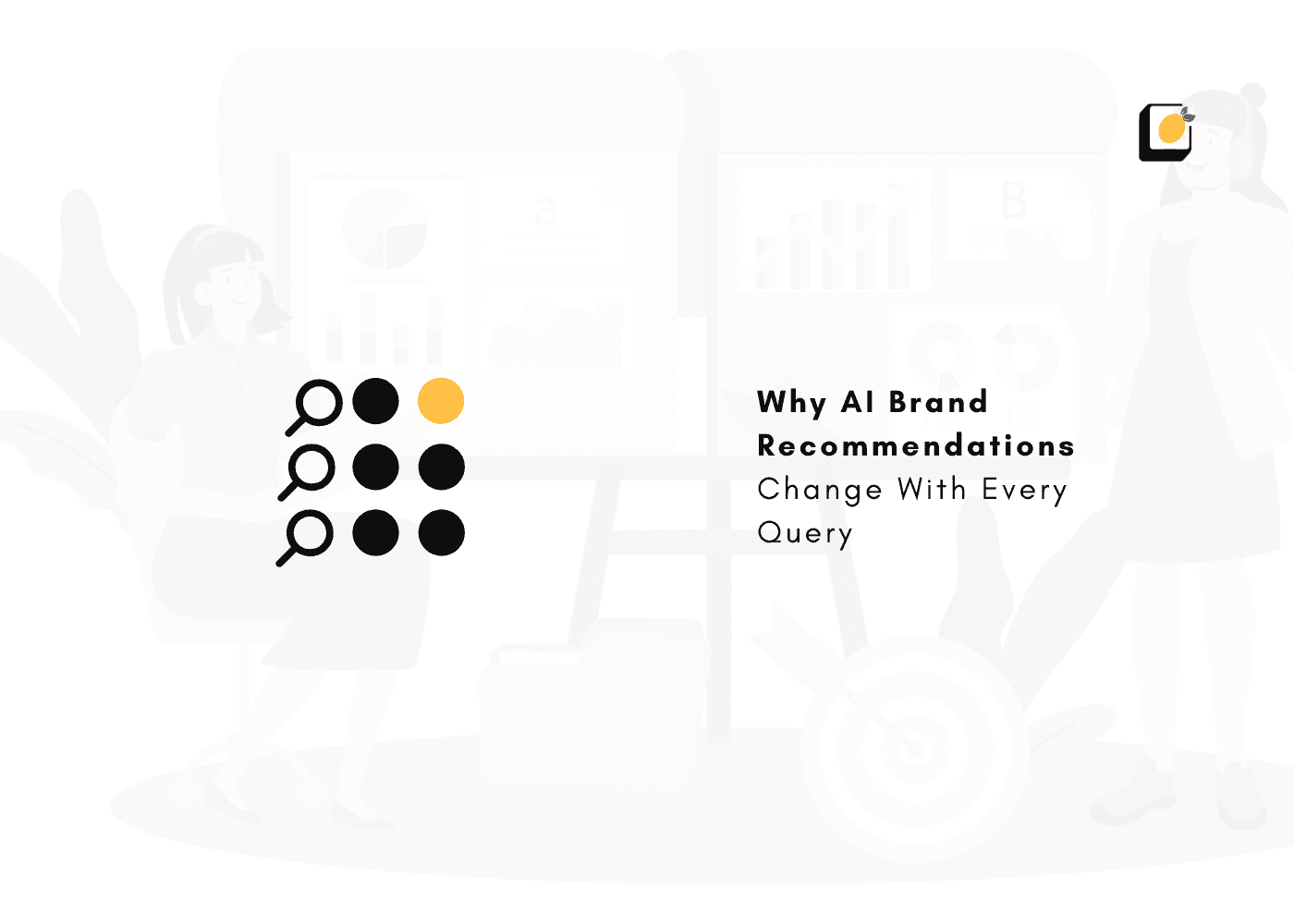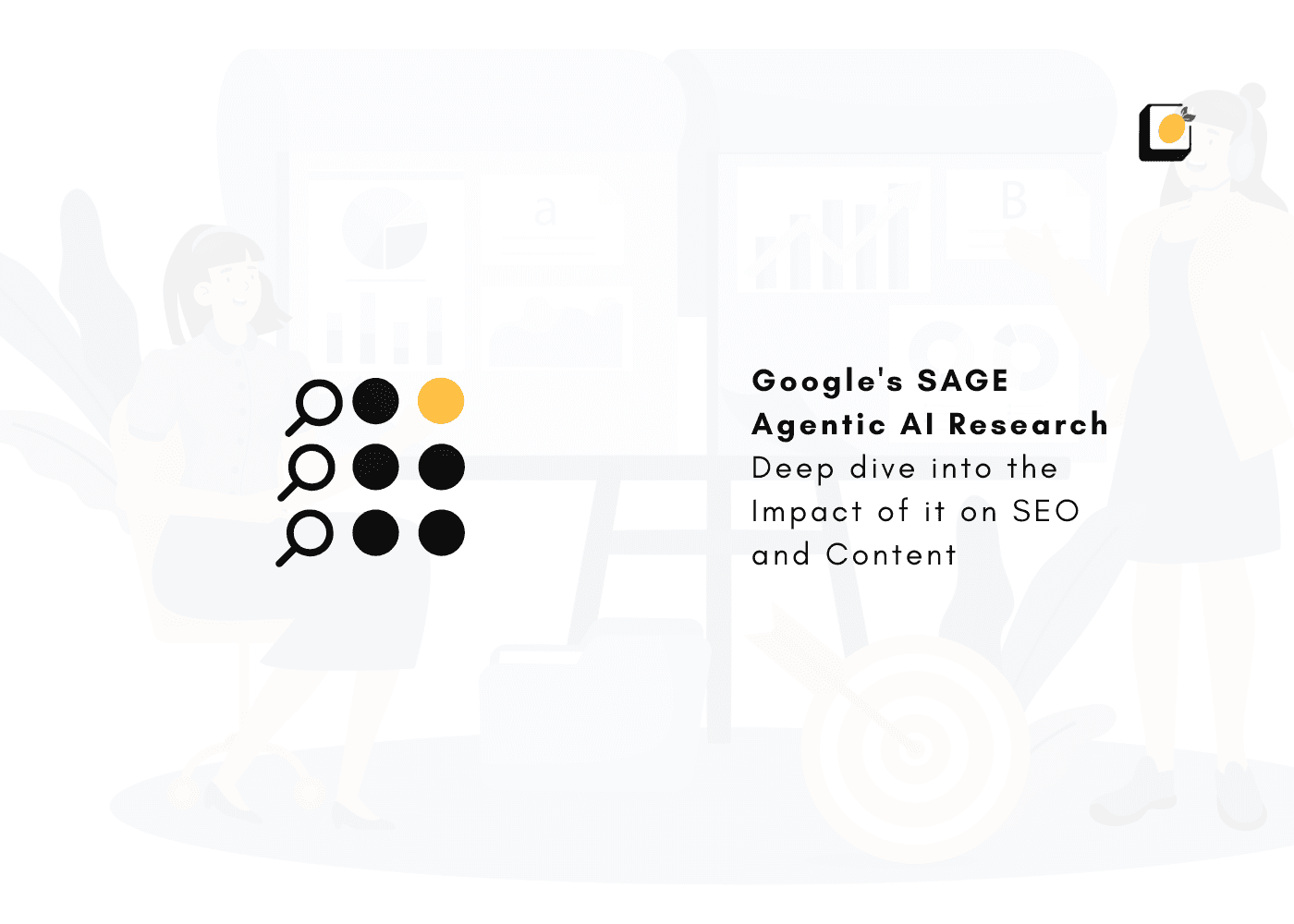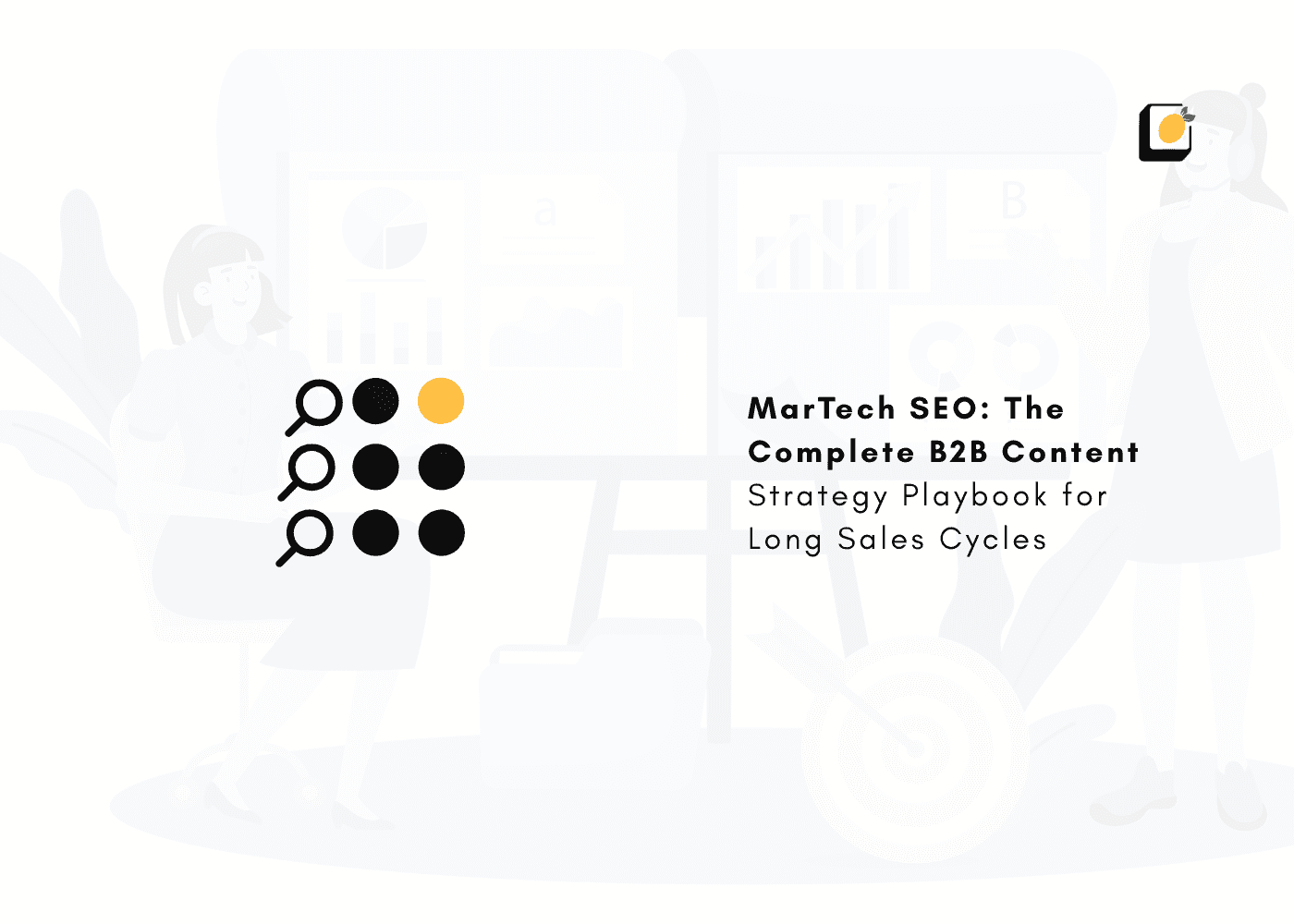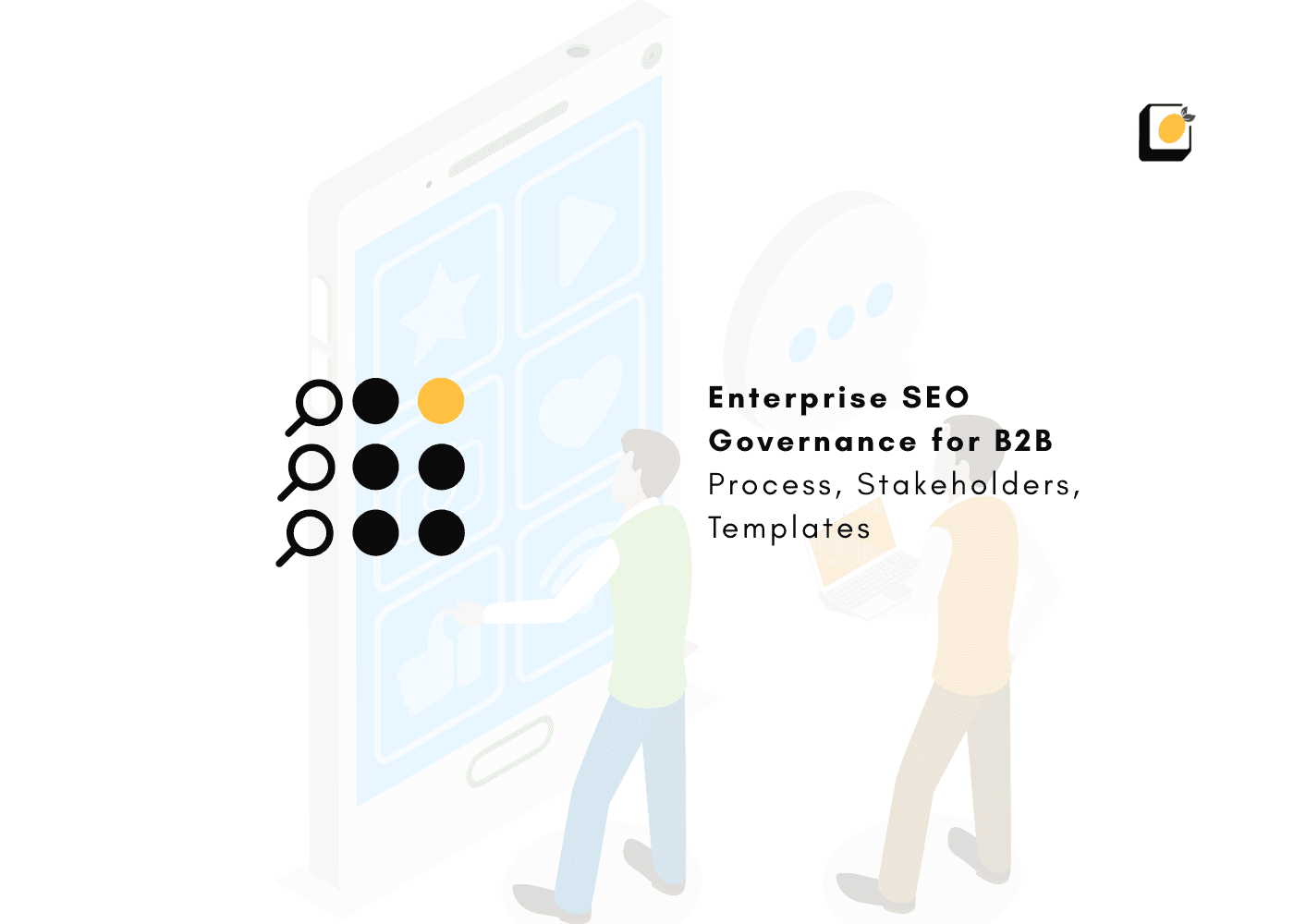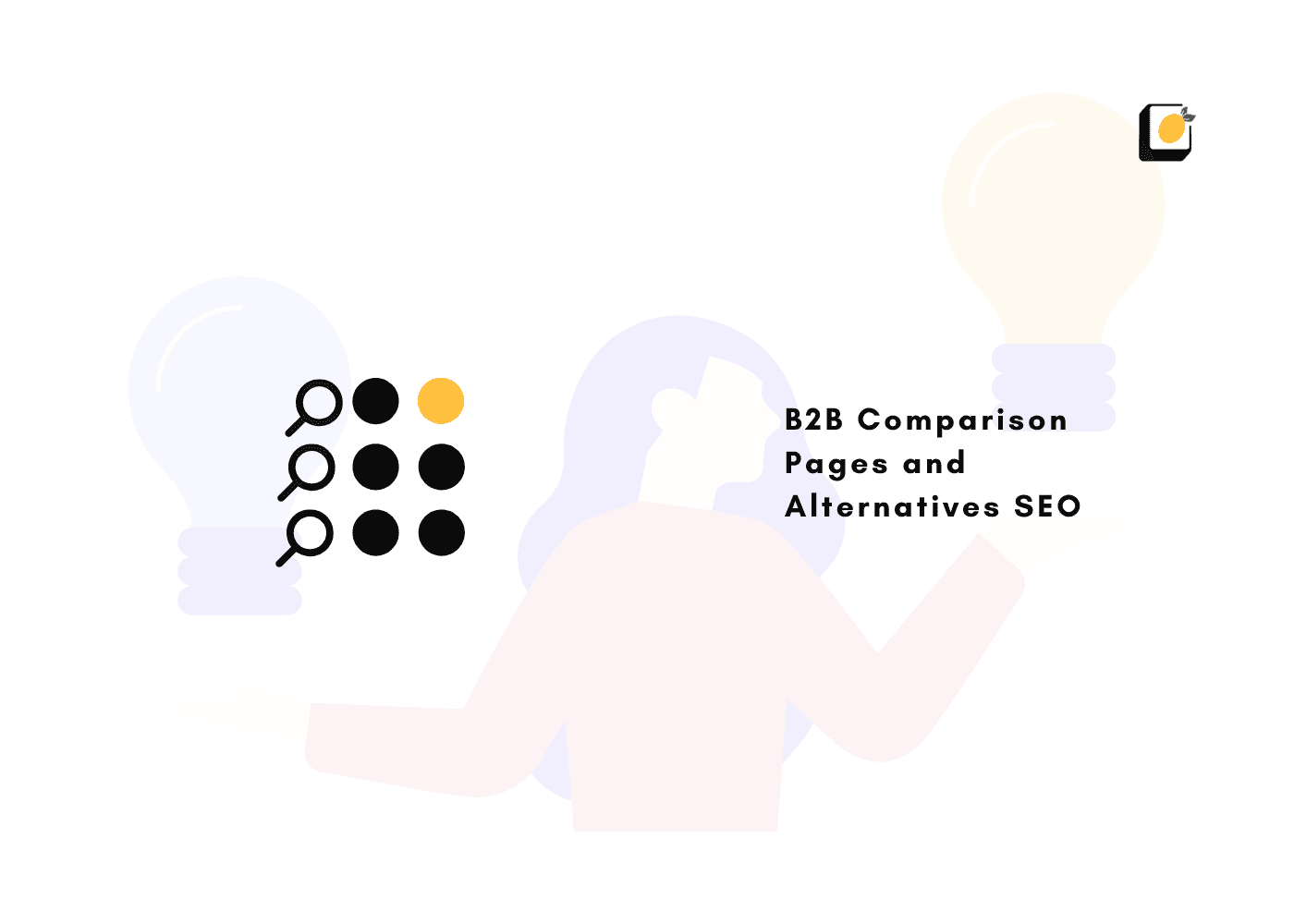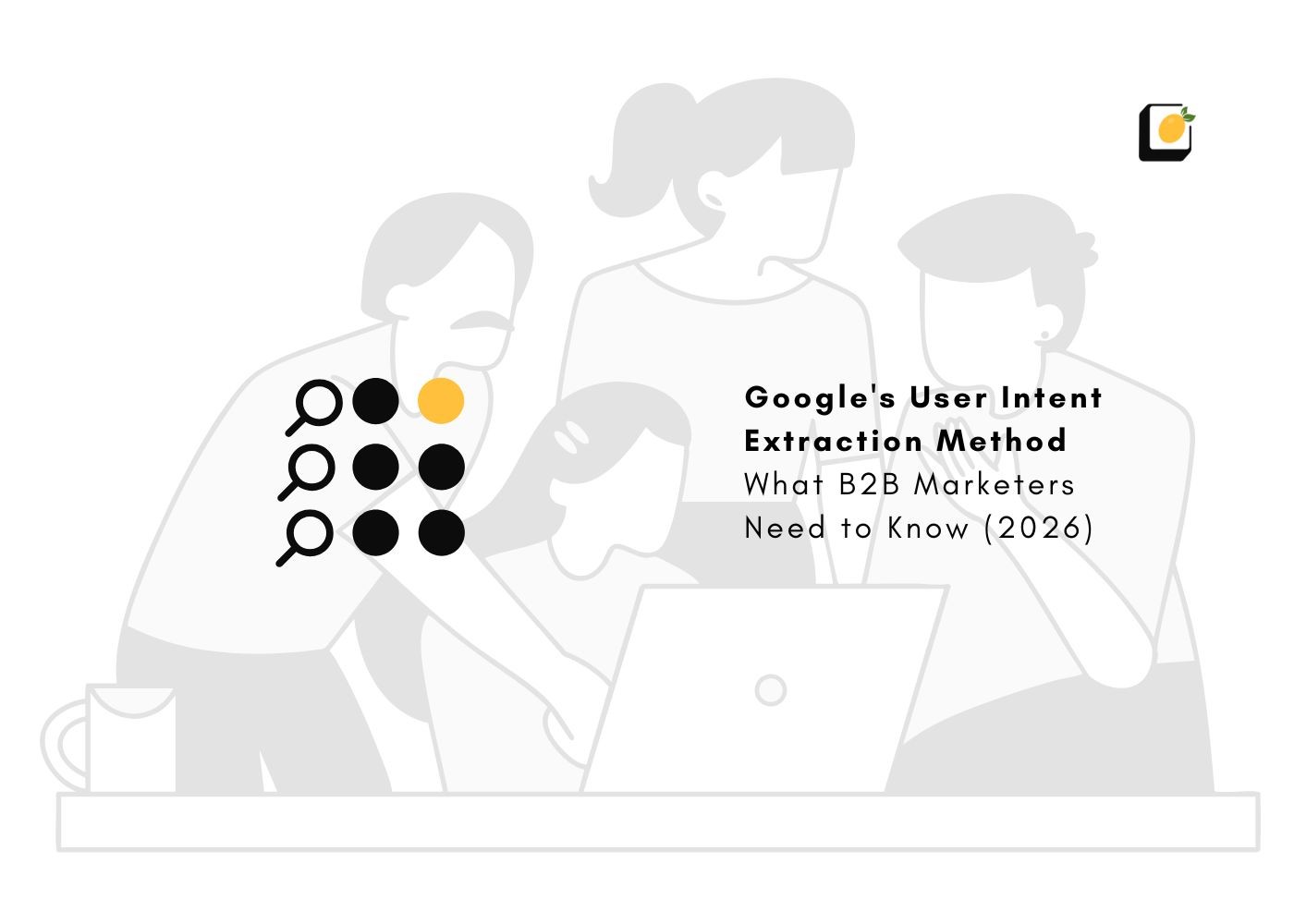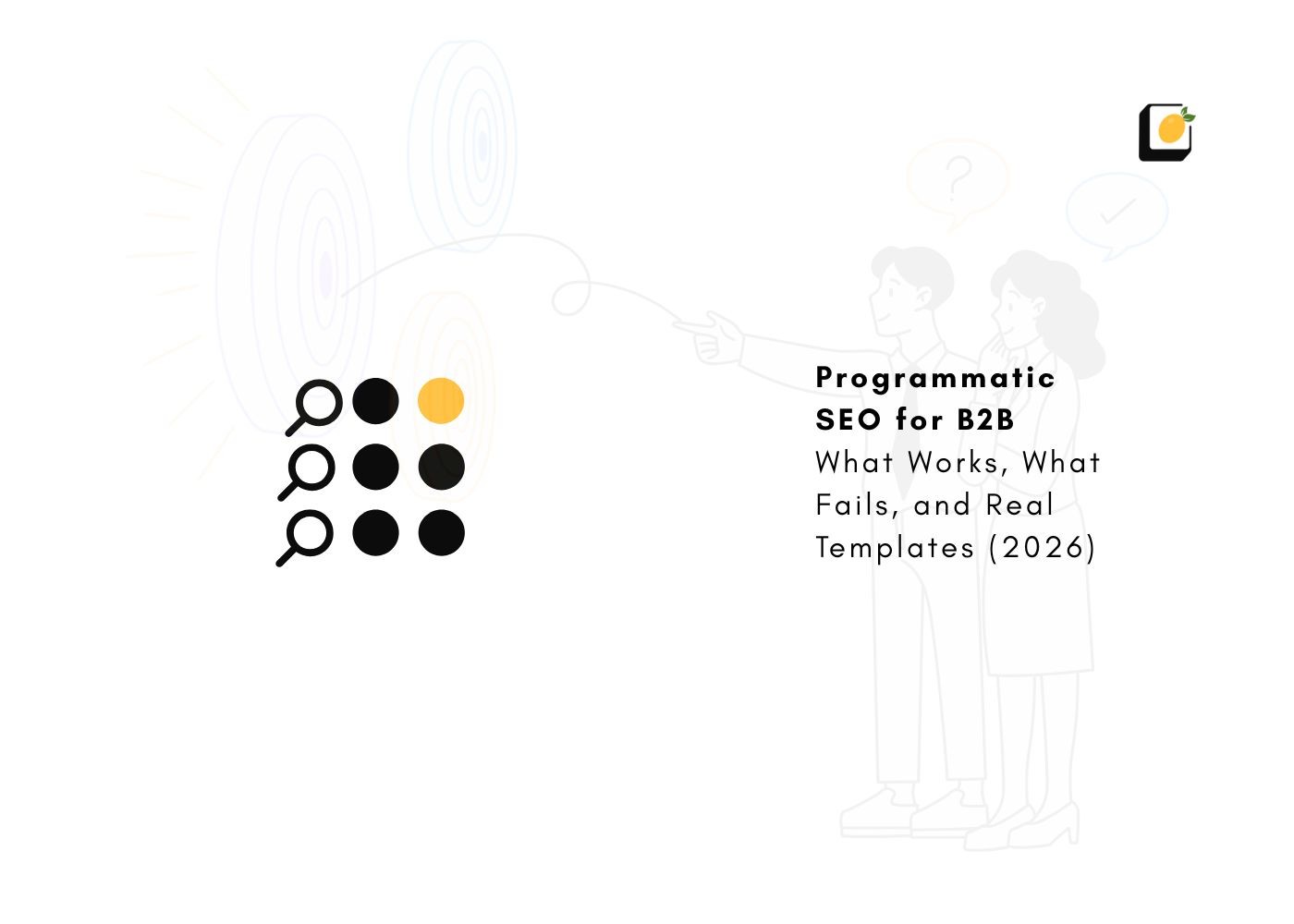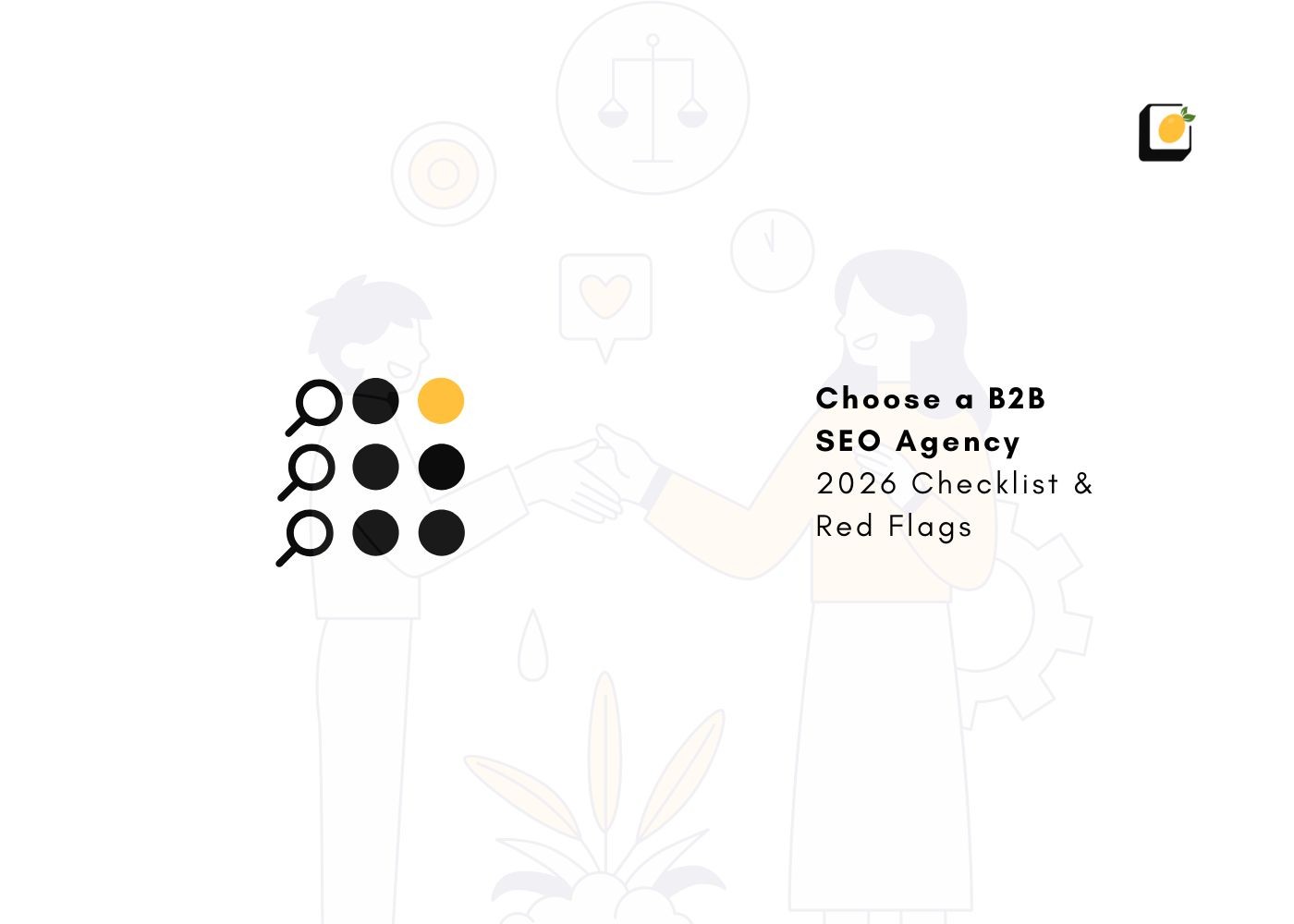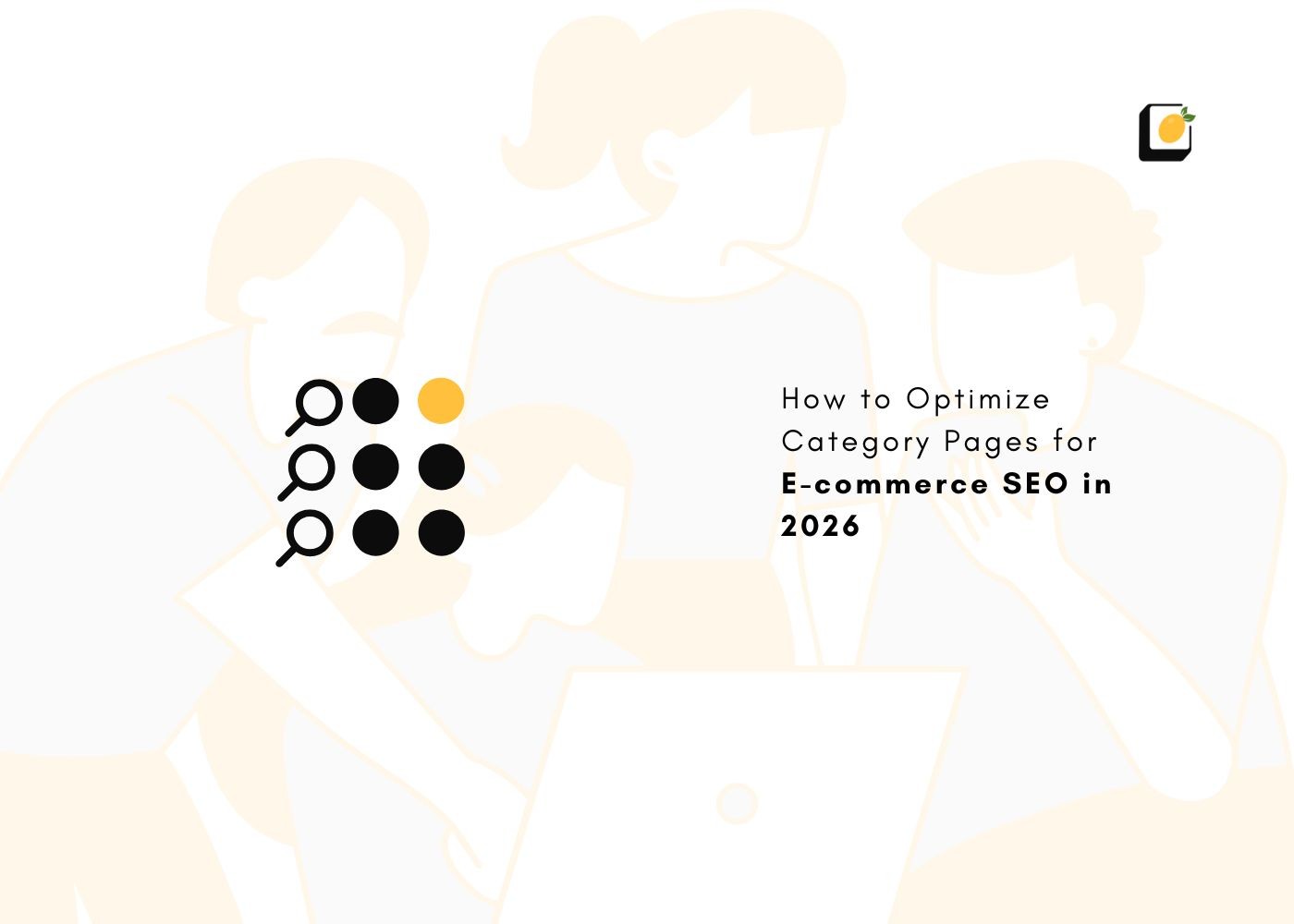Demystifying SEO Jargon for CEOs and CXOs Beyond Buzzwords: All Things Explained
August 16, 2025
Join 500+ brands growing with Passionfruit!
As a business leader, your day is a constant navigation through a landscape of critical acronyms and technical terms. From EBITDA and CAPEX to SaaS and CRM, you speak the language of business fluently. This language is precise, tied to metrics, and focused on the bottom line. But when your marketing team or a prospective digital marketing agency enters the boardroom and the conversation shifts to "SERPs," "backlinks," "schema," "crawling," and "keyword density," it can feel like you've been handed a dictionary for a foreign language. These are not just empty seo buzzwords; they represent the moving parts of a powerful engine that can, and should, be driving significant revenue and growth for your company.
In today's digital-first economy, ignoring Search Engine Optimization (SEO) is no longer a viable option. It is the equivalent of building a flagship retail store but refusing to put a sign above the door. Your customers, your future high-value clients, your partners, and your next top-tier employees are using search engines like Google to ask questions, solve problems, and make critical purchasing decisions every single minute of every single day. If your business isn't visible in those crucial moments, you are not just missing an opportunity—you are actively handing new business to your competitors who are.
This guide is written specifically for you, the CEO, CXO, or senior decision-maker. We will cut through the dense fog of jargon and explain the core concepts of SEO in the language you understand: the language of strategy, investment, and return. The objective is not to make you an SEO expert, but to empower you with the knowledge to ask the right questions, understand what you are paying for, and hold your teams and partners accountable for results. This is your seo guide to getting real, measurable value from your company's SEO investments.
What Does SEO Mean? A CEO's Guide to Definitions
To build a strong strategic understanding, we must first establish a clear and simple foundation. When your team talks about SEO, what should the seo meaning be for a business leader? Let's define seo in a way that matters to the C-suite.
How to Define SEO in Simple Terms
At its core, Search Engine Optimization (SEO) is the strategic process of improving your company's website so that it shows up more often, and more prominently, in unpaid search engine results. When your ideal customer searches for the products, services, or solutions you offer, you want your company to appear at the very top of that list. For a comprehensive introduction to SEO fundamentals, you can explore what SEO is and how it works.
Think of it in terms of real estate. Paid ads (often called Pay-Per-Click or PPC) are like renting a billboard on a busy highway. You pay for the placement, and as soon as you stop paying, your billboard comes down. SEO, on the other hand, is like buying and developing the most valuable plot of land at the city's busiest intersection. It requires an upfront investment of time, strategy, and resources, but once you've built your presence, you own that prime digital real estate. The visibility it generates is earned through credibility and authority, and it continues to pay dividends long after the initial work is done. An seo website is simply a site that has been strategically developed to occupy that prime real estate.
Why CEOs and CXOs Need to Know SEO Basics
A foundational understanding of seo for business is no longer a "nice-to-have" for executives; it is a core competency in digital leadership. The reason is simple: SEO is directly and inextricably tied to revenue, brand reputation, and long-term market share. To understand why SEO is important for businesses in the age of AI search, executives must grasp its strategic value.
Revenue Generation: Higher search rankings for relevant terms drive more targeted traffic to your website. This is not just any traffic; it is traffic from people actively looking for solutions you provide. More relevant traffic translates directly into more qualified leads, a healthier sales pipeline, and ultimately, increased sales.
Brand Authority and Credibility: In the mind of the modern consumer, search rankings confer authority. Companies that consistently appear at the top of search results are perceived as industry leaders. This digital "mindshare" builds trust and credibility long before a salesperson ever makes contact.
Competitive Advantage: Your competitors are investing in SEO. Understanding the basics allows you to assess their strategies and identify opportunities to outperform them, capturing market share they might otherwise dominate.
Strategic Alignment and Accountability: Knowing the fundamentals of SEO allows you to have meaningful, goal-oriented conversations with your marketing team and any seo agency you partner with. You can move beyond nodding along to technical jargon and start asking critical questions that ensure their efforts are directly aligned with your overarching business goals, such as increasing market penetration or reducing customer acquisition costs.
The Role of SEO Services in Business Growth
Once you understand the 'what' and 'why,' the next logical question is 'how.' Executing a successful SEO strategy is a complex, multi-faceted endeavor that requires specialized skills and dedicated resources. This is where professional seo services become a critical lever for business growth. These services, offered by a range of seo providers, are designed to manage and execute the intricate tasks required to improve your search engine rankings and drive sustainable growth. Understanding why SEO can be expensive helps justify the investment to stakeholders.
Types of SEO Services Every Executive Should Know
SEO is not a single, monolithic activity. A comprehensive and effective strategy is much like a well-balanced investment portfolio, composed of several distinct but interconnected disciplines. The 4 pillars of SEO provide a framework for understanding these components. When you engage with an agency, they should be able to clearly articulate how they will approach each of these areas.
Technical SEO: This is the foundation of your entire SEO effort. It focuses on the health and performance of your website's backend infrastructure. The goal is to ensure search engines can find, "crawl" (read), and "index" (store) your site's content without any technical roadblocks. Think of it as ensuring the electrical and plumbing systems of your building are up to code before you start decorating the rooms. For beginners, exploring technical SEO terms can provide a helpful glossary.
On-Page SEO: This involves optimizing the content and HTML source code of the individual pages on your site. This is where the strategy becomes visible. It includes crafting compelling title tags and meta descriptions, structuring content with logical headings, using the right seo keywords naturally, and ensuring your content thoroughly answers the user's query. Learning how to optimize title tags can significantly improve click-through rates.
Off-Page SEO: This refers to all strategic activities performed outside of your own website to enhance its authority and reputation in the eyes of search engines. The most well-known component of off-page SEO is link building—the process of earning links from other high-quality, relevant websites. These links act as "votes of confidence," signaling to Google that your site is a trustworthy resource. Sometimes, managing your link profile requires understanding what link disavowing is and how to disavow links.
Local SEO: This is a critical service for any business with physical locations or that serves specific geographic areas. Local SEO focuses on optimizing your presence for "near me" searches and appearing prominently in Google Maps and the "Local Pack" results. For businesses wanting to leverage near me searches, this requires specialized strategies.
Content SEO: This discipline sits at the intersection of content creation and SEO. It revolves around the planning, creation, and optimization of content assets (like blog posts, articles, white papers, and case studies) designed specifically to attract, engage, and convert your target audience through search. Understanding E-A-T in SEO is crucial for creating authoritative content.
Choosing the Right SEO Agency for Your Company
Selecting an external partner to manage your company's search presence is a significant decision that can have a lasting impact on your growth trajectory. The market is saturated with marketing agencies, specialized seo firms, and individual consultants, all promising top rankings. Understanding how Passionfruit differs from typical SEO agencies can help inform your decision. The right partner for you will operate as a strategic extension of your in-house team, demonstrating a deep understanding of your business model, sales cycle, and overarching goals. A digital marketing agency is a company you hire to handle all aspects of your online marketing, with SEO being a critical component of their offerings.
When evaluating a potential seo optimization agency, your due diligence should focus on these key areas:
A Proven and Relevant Track Record: Do not settle for generic promises. Ask for specific case studies and references from companies in your industry or with similar business models. An agency that has achieved success for a B2B SaaS company will be better equipped to help you than one that primarily works with local e-commerce stores. For e-commerce specifically, exploring the top 10 ecommerce SEO agencies can provide insights.
Radical Transparency: A trustworthy agency will be completely open about their methods and processes. They should be able to explain their strategy in clear terms you can understand. Be wary of any agency that shrouds its methods in secrecy or promises "proprietary techniques."
A Relentless Focus on ROI: A top-tier partner will want to understand your customer lifetime value (CLV) and sales conversion rates. Their primary goal should be to demonstrate how their efforts are generating a positive return on investment by driving qualified leads that turn into revenue.
Strategic Depth, Not Just Tactical Execution: Many low-cost providers offer a simple checklist of tasks. A true strategic partner will develop a bespoke seo strategy tailored to your unique competitive landscape, target audience, and business objectives. They should be proactive, bringing new ideas and opportunities to the table.
What to Ask SEO Consultants Before Hiring
To vet potential partners effectively, you need to ask questions that cut through the sales pitch. Before you hire any seo consultants or agencies, have them answer these questions:
"How will you align your SEO activities with our specific business goals, such as increasing MQLs (Marketing Qualified Leads) or entering a new market?"
"Can you walk me through your process for developing a strategy for a company like ours?"
"How do you measure success? Show me a sample seo report and explain how it demonstrates business value, not just traffic increases."
"How will you communicate progress and results to our leadership team? What is the frequency and format of your reporting?"
"Based on your initial assessment of our website and our competitors, what do you see as our biggest opportunity and our most significant challenge?"
The quality and clarity of their answers will tell you everything you need to know about their strategic capabilities and whether they are the right fit for your business.
Breaking Down Technical SEO: What Matters to Leaders
Of all the disciplines, technical seo is often the most opaque and intimidating for non-experts. It is filled with its own unique jargon and seems far removed from day-to-day business operations. However, from a leadership perspective, you only need to grasp one core concept: technical SEO is the foundation upon which all of your other marketing efforts are built. Its primary goal is to remove any and all barriers that prevent search engines from efficiently finding, understanding, and ranking your website. Understanding the future of technical SEO helps you prepare for upcoming changes.
A technically unhealthy website is like trying to run a marathon with an injury. No matter how much you train (create content) or how great your running shoes are (your website design), your underlying technical issues will prevent you from performing at your best.
Key Technical SEO Terms Explained
When you sit in on a marketing review, your seo specialists might use these terms. Here's what they mean in plain business English and why you should care.
Crawling & Indexing:
What it is: Crawling is the process where search engines like Google send out automated bots (called "spiders" or "crawlers") to discover new and updated content on the web. Indexing is the process of storing and organizing that discovered content in a massive database. When a user performs a search, Google sifts through its index—not the live internet—to find the most relevant results. Understanding what Google indexing is and how it works is fundamental.
Why it matters to a CEO: If your site has technical errors that prevent crawling, Google's bots can't see your pages. If they can't see your pages, they can't add them to their index. If your pages aren't in the index, they are completely invisible in search results. It is the digital equivalent of being unlisted. You could invest millions in a beautiful, persuasive website, but if it is not indexed, it generates zero organic traffic.
Site Speed (Page Load Time):
What it is: This is, quite simply, how fast your web pages load for a visitor. This is often measured by metrics called Core Web Vitals. Learning how to minify code for better page speed is one technical optimization that can help.
Why it matters to a CEO: Site speed has a direct and measurable impact on revenue. In a world of instant gratification, every millisecond counts. A slow-loading website leads to a poor user experience, which causes visitors to abandon your site (a high "bounce rate"). This means lost leads and lost sales. Conversely, improving site speed can directly increase conversion rates. Furthermore, Google uses site speed as a ranking factor, meaning a faster site can lead to higher rankings and more traffic.
Mobile-Friendliness (Responsiveness):
What it is: This means your website automatically adjusts its layout and content to provide an optimal viewing experience on any device, from a large desktop monitor to a small smartphone screen.
Why it matters to a CEO: The majority of internet traffic now occurs on mobile devices. Your high-value B2B clients are checking emails, reading articles, and researching vendors on their phones during their commute, between meetings, and at home. If your site is difficult to use on a phone, you are alienating a huge portion of your audience. Google now operates on a "mobile-first indexing" model, which means it primarily uses the mobile version of your site for ranking and indexing. An unresponsive site will be severely penalized in search rankings.
XML Sitemap:
What it is: An XML sitemap is a simple file that lists all the important pages on your website. It acts as a roadmap for search engine crawlers.
Why it matters to a CEO: While not strictly required, a sitemap makes it much easier and more efficient for search engines to find all of your content, especially on large or complex websites. It ensures that no important pages—like a new product page or a critical landing page—are missed during the crawling process, helping them get indexed and ranked faster.
Schema Markup (Structured Data):
What it is: Schema is a type of code (or microdata) that you add to your website to help search engines better understand the context of your information. It explicitly tells Google what your content is about. For example, you can use schema to label your business's name, address, phone number, product prices, or FAQ sections. For e-commerce businesses, implementing top 10 essential AI e-commerce schemas is becoming crucial.
Why it matters to a CEO: Providing this clarity to search engines can help your site earn "rich snippets" in the search results. These are the enhanced listings you see with star ratings, prices, or FAQ dropdowns directly on the results page. These visually appealing listings have a higher click-through rate, meaning you get more traffic than your competitors even if you are in the same ranking position. It is a direct way to increase your digital shelf space. Understanding SERP features helps you maximize these opportunities.
How Technical SEO Impacts Your Website
Think of technical SEO as the non-negotiable cost of entry for playing in the digital marketplace. It is the essential infrastructure that makes everything else possible. A technically sound seo website is one that provides a seamless experience for both search engine bots and human users. This positive experience directly impacts your brand's reputation, your ability to convert visitors into customers, and the overall return on your marketing investments. Neglecting the technical foundation is one of the most common and costly mistakes a business can make online. Server errors, for example, can be devastating—knowing how to fix 5xx server errors is crucial for maintaining uptime.
SEO & Marketing: How They Work Together
One of the most persistent points of confusion for executives is where SEO fits within the broader marketing landscape. Is it a separate function? Is it part of IT? The answer is clear: seo & marketing are not separate disciplines; they are two sides of the same coin. Modern, effective SEO is a core, integrated component of a holistic digital marketing strategy. It should not operate in a silo. It should work in concert with your paid advertising, social media, email marketing, and public relations efforts to create a powerful and cohesive growth engine. Understanding the difference between SEO and SEM clarifies this relationship.
Why Marketing Agencies Offer SEO Services
A decade ago, you might have found marketing agencies that specialized only in creative, branding, or traditional advertising. Today, nearly every reputable digital marketing agency offers SEO as a core service. The reason is a fundamental shift in consumer behavior. The customer journey no longer begins with a TV ad or a billboard; it begins with a question typed into a search bar. Understanding how search works is fundamental to modern marketing.
Effective marketing is about being present and valuable in the moments that matter to your customers. SEO is the discipline that ensures you are visible in those exact moments. Marketing agencies offer SEO because it is essential for both filling the top of the marketing funnel (building awareness) and capturing demand at the bottom of the funnel (driving conversions). A brilliant social media campaign might generate a short-term spike in interest for your solution, but a strong SEO presence ensures that when people later search for that solution, you are there to capture that interest organically, 24/7. SEO provides the sustainable, always-on traffic that amplifies and complements all other promotional campaigns.
Integrating Content Strategy With SEO
Content strategy and SEO are so deeply intertwined that they are practically inseparable in modern marketing. Your content strategy answers the question, "What information will we create to attract, engage, and help our target audience?" Your SEO strategy ensures that the content you create is discovered by that audience through search engines. The rise of editorial thinking in the post-writing era has transformed how we approach content creation.
A successful content strategy seo plan is a virtuous cycle:
It Starts with SEO Data: You use keyword research and competitor analysis to understand exactly what questions your audience is asking, what problems they are trying to solve, and what language they use to describe their needs. Utilizing best free keyword research tools can help small businesses get started.
It Informs Content Creation: This data provides a roadmap for your content team. Instead of guessing what to write about, they create high-quality, expert content (blogs, articles, guides, white papers) that directly addresses the proven needs and pain points of your audience. This is the heart of creating valuable seo content. Learning how to write an SEO optimized article can accelerate this process.
It Guides Content Optimization: As the content is created, SEO best practices are applied. This includes using target keywords naturally, structuring the content with clear headings, adding internal links to other relevant pages on your site, and optimizing images. Creating SEO-friendly URLs is another important optimization.
It Fuels Content Promotion: Once published, SEO best practices help promote the content to earn those valuable backlinks and social shares, which boosts its authority and helps it rank even higher, attracting more of your target audience and starting the cycle anew.
The Value of Content Marketing Agencies
For many businesses, executing this cycle consistently and at a high level of quality is a significant challenge. It requires skilled writers, strategists, and SEO specialists. This is where specialized content marketing agencies can provide immense value. These agencies bring expertise in creating high-performing content that is tailored to a specific audience and optimized for search from the ground up. For a CEO, partnering with one can be a strategic decision to scale content production and expertise quickly, without the overhead of building a large in-house team. Understanding why every business should blog reinforces the importance of content.
Understanding SEO Strategies for Decision-Makers
As a leader, your role is not to execute the granular tasks of an SEO campaign. Your role is to set the direction and ensure the plan is sound. You need to understand seo strategies at a high level, viewing them not as technical checklists but as business plans designed to achieve specific, measurable objectives, such as increasing qualified leads from a new market segment by 20% over the next fiscal year. Mastering SEO in 2025 requires understanding both traditional and emerging strategies.
The Importance of SEO Keywords in Business
SEO keywords are the single most important bridge between your business and your potential customers. They are the exact words and phrases your audience types into search engines when they are looking for answers, solutions, and vendors. They are the unfiltered language of customer intent. A comprehensive guide to finding the best SEO keywords can help CMOs and executives understand this process.
A strategy built on the right keywords ensures that you are attracting a relevant audience that is actively looking for the solutions you provide. A strategy built on the wrong keywords—perhaps terms that are too broad or not aligned with purchasing intent—can lead to a website with plenty of traffic but a pipeline that remains empty. Understanding what keywords, LSI keywords, and semantic keywords are provides a deeper foundation.
From a strategic viewpoint, think about keywords in terms of the buyer's journey:
Top of Funnel (Awareness): Keywords here are problem-focused and informational (e.g., "how to improve team productivity"). Your content should educate and inform.
Middle of Funnel (Consideration): Keywords are solution-focused and comparative (e.g., "best project management software" or "Trello vs. Asana"). Your content should help potential customers compare options and understand your unique value proposition.
Bottom of Funnel (Decision): Keywords are brand-focused and transactional (e.g., "Passionfruit pricing" or "get a demo of [your product]"). Your content should make it easy to buy or make contact.
A sophisticated SEO strategy targets keywords across this entire spectrum, building a relationship with potential customers from their very first question to their final purchasing decision.
How to Read an SEO Report
The monthly or quarterly seo report should be a tool for strategic insight, not a source of confusion. As a leader, you should demand a report that speaks your language. Avoid any agency or team that provides a data dump of spreadsheets filled with jargon. A useful report for a CEO should be a clear, concise document that connects SEO activities directly to business outcomes.
A C-suite-level SEO report must include:
An Executive Summary: A one-page overview written in plain English. It should summarize what was done, what the results were, and what the strategic plan is for the next period.
Key Performance Indicators (KPIs) That Matter:
Instead of just "Traffic," look for "Qualified Organic Traffic Growth" and "Conversion Rate from Organic Traffic." Understanding the difference between organic traffic vs organic conversions is crucial.
Instead of just "Rankings," look for "Ranking Improvements for High-Value, Bottom-of-Funnel Keywords."
The most important metrics: "Number of Marketing Qualified Leads (MQLs) from Organic Search" and, if your systems are integrated, "Pipeline Value and Revenue Generated from Organic Leads."
A Clear View of ROI: Over time, the report must draw a clear, data-backed line between your SEO investment and the revenue it is generating.
Actionable SEO Tips for Executives
You can have a profound impact on the success of your company's SEO efforts without ever touching a line of code. Here are some of the most effective seo tips for leadership. For beginners on your team, sharing top SEO tips for beginners can help them contribute effectively.
Champion SEO Internally: Treat SEO as a vital business function, not a niche marketing task. Ensure your team has the budget, resources, and C-suite support needed to execute a winning strategy.
Ask "Why" and "How": When your team proposes an SEO initiative, ask the strategic questions. "Why are we targeting this keyword set? How will ranking for these terms help us achieve our Q3 business goals?"
Foster a Culture of Content: Encourage cross-departmental collaboration to create content that showcases your company's deep expertise. Your engineers, product managers, and sales team have valuable insights that can be turned into powerful, authoritative content.
Demand ROI-Focused Reporting: Make it clear that you expect to see how SEO activities are impacting the bottom line. This focus will force your team and agency partners to prioritize the tasks that deliver the most business value.
Measuring Success: Tracking SEO Rankings and Results
You cannot manage what you do not measure. A critical, non-negotiable part of any professional SEO engagement is the meticulous tracking of progress and the measurement of success against your stated business goals. While tracking seo rankings for a list of target keywords is an important metric, it is just one piece of a much larger puzzle. True success is measured in business outcomes, not just chart positions. Understanding what a SERP is and why it matters provides context for ranking discussions.
How SEO Rankings Affect Your Bottom Line
It is crucial to draw a straight line from the seemingly abstract concept of seo rankings to the very concrete reality of your company's P&L statement. Here is how it works:
Higher Rankings = More Visibility: The top three organic search results on Google get the vast majority of clicks. If you are not on the first page, you are effectively invisible to most searchers.
More Visibility = More Qualified Traffic: Ranking for the right keywords—those with commercial intent that align with your business offerings—means that the people clicking through to your site are highly qualified prospects who are actively seeking solutions.
More Qualified Traffic = More Leads: When these prospects land on your website and find valuable content that answers their questions and a clear path to conversion (like a "Request a Demo" form), they become leads for your sales team.
More Leads = More Revenue: A steady stream of high-quality, inbound organic leads allows your sales team to spend less time prospecting and more time closing deals, directly impacting your bottom line.
A top-3 ranking for a single high-value, bottom-of-funnel keyword can be a significant and continuous source of new business, often with a much lower customer acquisition cost than paid channels. This is the ultimate power of seo for business. Understanding the 15 SEO benefits you need to know can help build your case internally.
Working With SEO Experts for Better Outcomes
While it is certainly possible for an in-house marketing generalist to learn and implement some SEO basics, the field is exceptionally complex and notoriously dynamic. Google is said to make hundreds of changes to its algorithms every year. To achieve market-leading results, you need market-leading expertise. For those wondering if they can do SEO yourself, the answer depends on your resources and goals.
Working with dedicated seo experts or a reputable agency gives your company access to:
Specialized Knowledge: These seo professionals live and breathe search. They are up-to-date on the latest algorithm changes, industry trends, and competitive strategies. They understand complex topics like the impact of AI on search engine algorithms.
Advanced Tools: Professional SEO requires a sophisticated and expensive toolkit for analytics, keyword research, site auditing, and rank tracking. Agencies provide access to these tools as part of their service. Understanding which tools work best, like comparing Semrush vs Ahrefs vs Moz, helps maximize value.
Years of Experience: Experienced practitioners have seen what works and what does not across hundreds of websites and dozens of industries. This experience allows them to implement strategies more efficiently and avoid costly mistakes.
Ultimately, partnering with experts leads to a faster and more significant return on your investment.
What Makes Top SEO Firms Stand Out
The market is crowded with providers, but the truly top seo firms distinguish themselves in a few key ways. They move beyond being simple vendors and become genuine strategic partners. They are defined by their understanding of emerging trends like how AI search is reshaping SEO and Generative Engine Optimization (GEO).
Business Acumen: The best seo firms invest time in understanding your business model, your customers, your sales cycle, and your competitive pressures. Their recommendations are grounded in your business reality.
Proactive Communication: They do not just send a report once a month. They provide regular updates, explain the "why" behind their actions, and are proactive in bringing new strategic ideas to your attention.
Integration: They work seamlessly with your in-house marketing, content, and even product teams to ensure the SEO strategy is integrated across the entire organization.
A Focus on the Future: They are not just reacting to today's algorithms. They are looking ahead at trends like AI search and voice search, helping you build a strategy that will be successful for years to come. This includes expertise in emerging fields like Generative Engine Optimization (GEO) and understanding SEO vs GEO vs AEO.
Common SEO Content Terms Every CEO Should Know
Content is the lifeblood of any modern SEO effort. You cannot rank without it. Understanding the terminology around seo content will help you better grasp the strategic discussions happening within your marketing department. The shift towards AI-powered SEO tools and how AI is transforming content creation is reshaping this landscape.
The Role of Content Strategy in SEO
A content strategy is the high-level plan that governs all of your content-related activities. It answers fundamental questions like: Who is our audience? What are their biggest challenges? What topics should we cover to help them and demonstrate our expertise? How will we create, publish, and manage this content over time?
In the context of SEO, the content strategy is not just about creating blog posts. It is about systematically creating assets that are designed to rank for specific keywords and attract your target audience at every stage of their journey. It is the "why" behind every article, white paper, and case study you publish. A good strategy ensures your content efforts are focused and aligned with business goals, rather than being random and reactive.
Digital Marketing Services That Include SEO
When you engage a full-service agency, you will often purchase a package of digital marketing services. SEO is a foundational piece of this package, but it works best when integrated with others. For example:
Paid Search (PPC): Data from paid campaigns can provide rapid insights into which keywords convert best, informing your long-term SEO content plan.
Social Media Marketing: Sharing your SEO-driven content on social platforms can increase its reach and help generate valuable backlinks.
Email Marketing: You can use email to promote your latest content to your existing audience, driving traffic and engagement signals that can positively influence rankings.
Effective marketing seo is about making sure all these channels are working together, with SEO acting as the central, always-on hub for attracting and capturing organic demand.
Conclusion: Getting Value from Your SEO Investments
Navigating the world of SEO does not have to be a frustrating exercise in decoding jargon. By reframing the conversation around business goals, ROI, and strategic outcomes, you can transform SEO from a confusing line item in the marketing budget into one of your company's most powerful and reliable drivers of growth.
It is not about becoming an expert in the technical weeds yourself. It is about acquiring the strategic literacy to lead your team and agency partners effectively. Challenge them to connect every activity back to a tangible business objective. Demand reporting that is clear, concise, and focused on the bottom line. Champion a culture that values creating genuinely helpful, authoritative content.
By cutting through the seo buzzwords and focusing on what truly matters—more qualified leads, a stronger and more credible brand, and a measurable return on your investment—you can unlock the immense potential of search to build a more profitable and sustainable business.
Ready to partner with an seo optimization agency that speaks your language and is relentlessly focused on results? Get started with Passionfruit to build a clear, powerful strategy that drives real business growth.
Frequently Asked Questions: SEO Simplified for Executives
Question: How quickly can our business expect to see results from SEO? Answer: While minor improvements can be seen in 1-3 months, expect to see significant, impactful results in terms of traffic and leads in about 6 to 12 months. SEO is a long-term strategy that builds compounding value over time.
Question: What is the real difference between SEO and SEM? Answer: SEO (Search Engine Optimization) focuses on earning unpaid, organic traffic from search engines. SEM (Search Engine Marketing) is a broader term that includes both SEO and paid advertising methods like pay-per-click (PPC).
Question: Why do our search rankings change so often? Answer: Rankings fluctuate due to Google's frequent algorithm updates, competitor activities, and changes in search trends. A good SEO strategy focuses on long-term stability rather than reacting to minor daily changes.
Question: Is SEO a one-time project or an ongoing effort? Answer: SEO is an ongoing effort. The digital landscape is always changing, with new competitors emerging and search engine algorithms constantly evolving, requiring continuous maintenance and adaptation.
Question: How does the rise of AI Search affect our SEO investment? Answer: AI Search makes high-quality, authoritative content more important than ever. The goal is now to provide clear, expert answers that AI models can use and cite, which requires a focus on Generative Engine Optimization (GEO).


